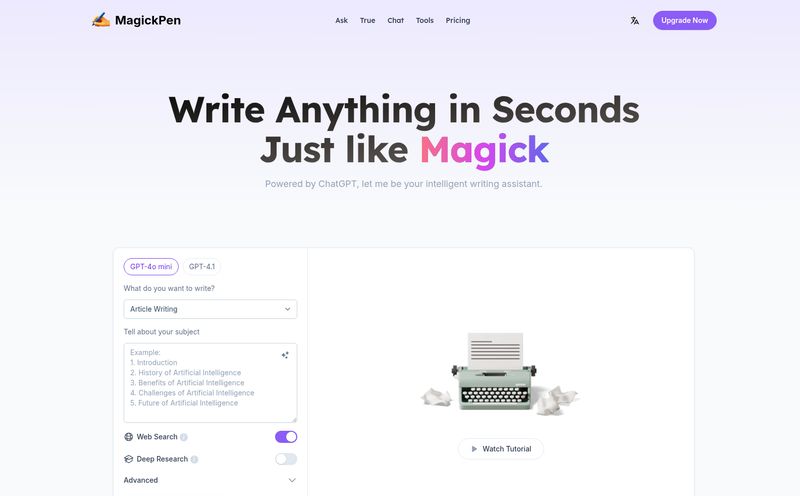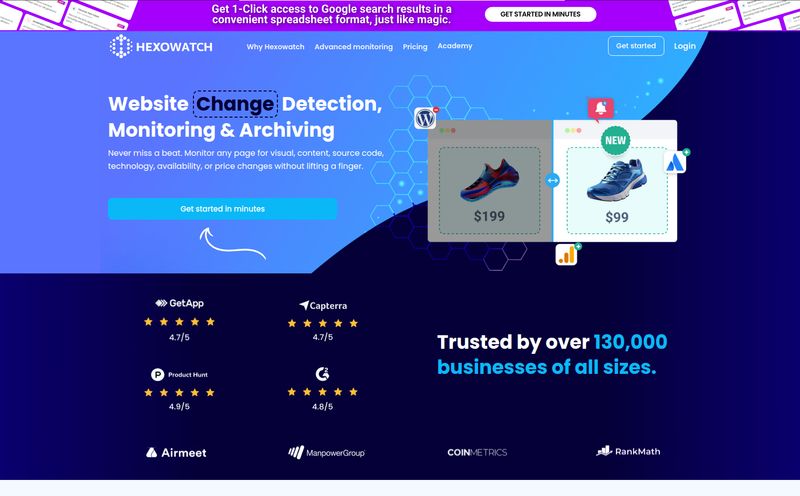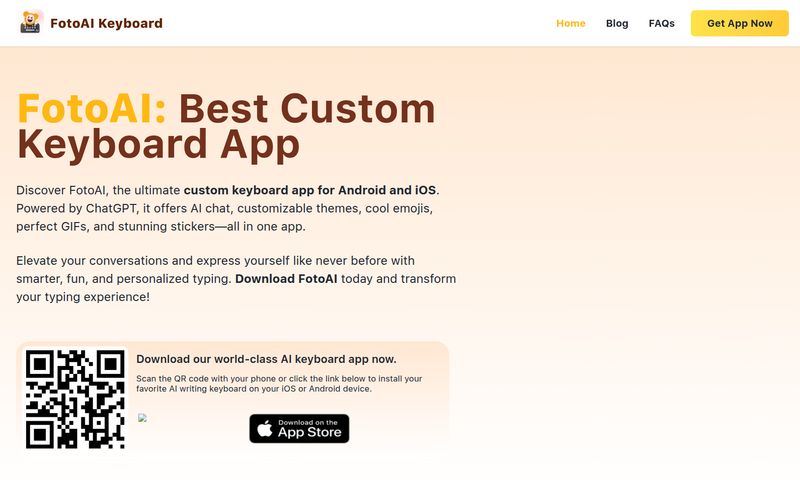We’ve all been there. It’s 11 PM, you're staring at a blinking cursor, and you’ve just typed an email to a major client that sounds like it was written by a sleep-deprived squirrel. You hit send. And then, at 11:01 PM, you spot it. The glaring typo. The sentence that makes zero sense. That feeling? Yeah, it’s the worst.
For years, the go-to safety net for writers, students, and professionals has been Grammarly. It’s become as ubiquitous as Google Docs or Microsoft Word. But in a world now swimming with powerful generative AI like ChatGPT, a big question looms: Is Grammarly still relevant? Is it still worth the investment, or has it become a relic?
As someone who lives and breathes content—writing it, optimizing it, and agonizing over every comma—I have a lot of thoughts. My relationship with Grammarly is… complicated. So let’s get into it.
First Off, What Is Grammarly, Really?
If you think Grammarly is just a glorified spell-checker, you've been missing the point for a while now. At its core, yes, it catches your spelling flubs and grammatical goofs. But it’s morphed into a full-blown AI-powered writing assistant. Think of it less as a red pen and more as a co-pilot for your writing. It doesn't just tell you that you're wrong; it tries to tell you why and suggests how to be better.
It works pretty much everywhere you write online. In your email, on social media, in Google Docs, Slack... it’s just there, quietly judging your prose from a little green icon in the corner. This integration is, hands down, one of its killer features.
The Features I Actually Use Every Day
A tool can have a million features, but only a few end up being part of your daily grind. Here’s the stuff in Grammarly that I can't imagine working without.
The Tone Detector is a Career-Saver
This is it. This is the feature that provides the most value, in my opinion, especially in the Pro version. Before you send that email to your boss or post that update on LinkedIn, Grammarly gives you a little vibe check. It’ll tell you if you're coming across as Confident, Friendly, Formal, or maybe a little too Assertive.
Ever worry that your direct feedback might sound rude? The tone detector is like having a friend read over your shoulder and say, “Hey, maybe we soften that a bit?” It has saved me from countless communication mishaps. It's the difference between saying “Your idea won’t work” and “I’m optimistic about this approach, but I have a few concerns about its feasibility.” See? Game-changer.

Visit Grammarly
Sentence Rewrites and Clarity Tweaks
This is where the AI really flexes. Grammarly often highlights entire sentences and suggests a complete rewrite for clarity or conciseness. Sometimes it’s brilliant, turning a clunky, wordy phrase into something sharp and impactful. Other times, well, it can be a little… prescriptive. It occasionally tries to sand down the interesting edges of your personal voice. The key is to treat them as suggestions, not commands. You're still the writer; it’s just your assistant.
Consistency is Queen: The Brand Tone Feature
For anyone working on a team, the brand tone feature (available on Pro and Enterprise plans) is fantastic. You can set up a style guide that tells Grammarly your company’s specific rules. Do you use the Oxford comma? Do you write “customer” or “client”? Is your brand voice witty and informal, or serious and academic? Once set, it helps ensure that everyone from marketing to sales is writing with a unified voice. It stops your company's content from sounding like it has multiple personality disorder.
Okay, Let's Talk About the Price Tag
Ah, the all-important question: how much does it cost? Grammarly’s pricing is tiered, which is smart because a college student doesn't need the same toolkit as a Fortune 500 company.
Here’s a quick rundown:
| Plan | Price | Who It's For |
|---|---|---|
| Free | $0/month | Perfect for basic spell checking, grammar, and punctuation. You get the basic tone detection and 100 AI prompts. Great for students and casual writers. |
| Pro | $12/month (billed annually) | This is the sweet spot for professionals. You get everything in Free, plus full-sentence rewrites, advanced tone adjustments, the plagiarism checker, and 2,000 AI prompts. If you write for a living, this is the one. |
| Enterprise | Contact Sales | For teams and businesses. All the Pro features, plus brand tones, analytics, priority support, and enhanced security features like SAML SSO. |
The annual plan for Pro offers a pretty significant discount over paying monthly. My advice? Try the free version for a week. If you find yourself constantly wishing you could use the advanced suggestions, it’s probably time to upgrade.
The Elephant in the Room: Grammarly vs. ChatGPT
“But can’t ChatGPT just do all this for free?” I hear you. And yes, you can paste your text into ChatGPT and ask it to proofread. It does a decent job.
But here’s the difference. It's about workflow. Grammarly integrates into your writing process. It's there in the document, giving you real-time feedback. You don't have to switch tabs, copy, paste, and then paste back. That friction is a bigger deal than it sounds, especially when you're in a creative flow.
I see them as two different tools in the same toolbox. I use ChatGPT for brainstorming, outlining, and generating first-draft ideas. I use Grammarly for refining, polishing, and ensuring that my own writing is as clear and effective as possible. They aren't really competitors; they're collaborators.
The Not-So-Great Stuff
No tool is perfect. Grammarly can sometimes be a bit… much. It doesn't always get the context, especially with humor, sarcasm, or highly technical jargon. I’ve had it try to “fix” a perfectly good sentence just because it was stylistically unconventional. You have to learn when to accept its advice and when to click “ignore.” It’s a guide, not a dictator. It also cant tell you if your core argument is weak or if your blog post is boring. That part is still on you.
Frequently Asked Questions About Grammarly
Is Grammarly better than the built-in spell checkers in Word or Google?
Absolutely. It’s like comparing a bicycle to a car. The built-in tools catch basic typos. Grammarly analyses sentence structure, tone, clarity, and conciseness. It's in a different league.
Does Grammarly steal your data?
This is a valid concern for any cloud-based tool. According to Grammarly's privacy policy, they don’t sell your data. For sensitive work, the Enterprise plan offers features like confidential mode. As with any online service, it’s smart to be aware of what you’re putting into it.
Is the plagiarism checker reliable?
It’s quite good! It checks your text against billions of web pages. It’s a great tool for students and academics to ensure they're citing sources properly and for bloggers to check for accidental similarities with other content online. I've found it to be pretty accurate in my own tests.
Is Grammarly Pro worth the money for a freelancer?
In my view, 100%. Think of it as a small business expense. The time it saves you in proofreading and the professionalism it adds to your emails and proposals will likely pay for the subscription many times over. The first time the tone detector stops you from sending a snippy-sounding client email, it’s paid for itself.
Does using Grammarly make you a worse writer over time?
I worried about this, too. But I've found the opposite to be true. By seeing the same suggestions repeatedly, you start to internalize the rules. You learn to spot passive voice or wordy sentences on your own. It can be a powerful learning tool if you pay attention to why it's making a suggestion, rather than just blindly accepting everything.
So, What's the Final Verdict?
So, is Grammarly still a must-have tool? For me, the answer is a resounding yes. It’s not perfect, and you can’t let it strip away your unique voice. But it’s an incredibly powerful safety net.
It’s the digital equivalent of having a patient, knowledgeable editor on call 24/7. It handles the tedious stuff—the comma placements and spelling checks—so you can focus on the bigger picture: the story you’re trying to tell, the argument you’re trying to make, and the connection you’re trying to build with your reader. It's the safety net that lets me focus on the tightrope walk of creating great content. And for that, it’s worth every penny.



